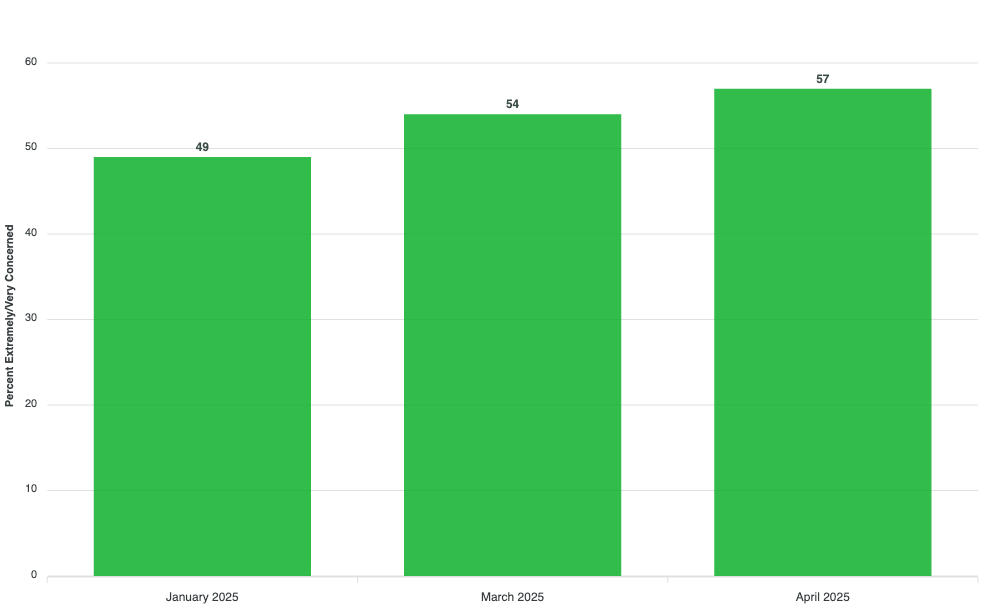ARLINGTON, Va. – Shoppers are entering the aisles with heavier concerns on their minds, according to the latest Grocery Shopper Snapshot from FMI – The Food Industry Association. The research conducted April 3–8, reveals a notable shift in consumer sentiment, with more shoppers now expressing pessimism about 2025 than optimism.
“Tariffs weigh heavily on the minds of grocery shoppers. As tariffs have been enacted or increased, shoppers have expressed growing concern about the impact of tariffs on imported food. Many also express concern that nonfood tariffs will increase the price of food products,” Allison Febrey, Senior Manager, Research & Insights, FMI wrote on the organization's Voice of The Food Industry Blog.
For the first time this year, more respondents (38%) report feeling negative about the year ahead than positive (36%). That’s a stark turnaround from January, when over half of grocery shoppers were hopeful about 2025.
Mounting concerns over the broader U.S. economy are driving this change. A full 67% of shoppers say they are extremely or very concerned about economic conditions, with inflation (65%) and the job market (46%) also high on their worry list.
Tariffs are emerging as a key pain point, particularly their potential effect on food prices. Many shoppers fear that tariffs—directly on food and nonfood goods—will drive up grocery costs. Among those concerned about increased food tariffs:
- 75% fear grocery prices will rise.
- 57% worry about product availability.
- 57% are concerned about being able to afford groceries at all.

Despite growing anxieties, there are some silver linings. Nearly 8 in 10 shoppers (79%) say they still feel in control of their grocery spending—a signal of resilience amid economic uncertainty.
FMI plans to continue tracking shopper sentiment each month through its Grocery Shopper Snapshot series. For deeper insights, visit the new U.S. Grocery Shopper Sentiment page on FMI’s website.










